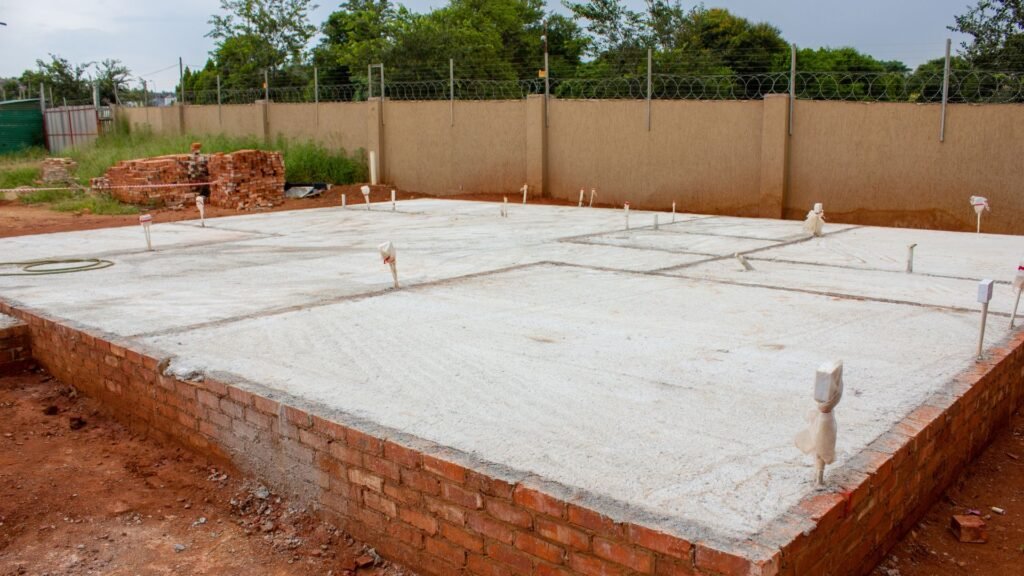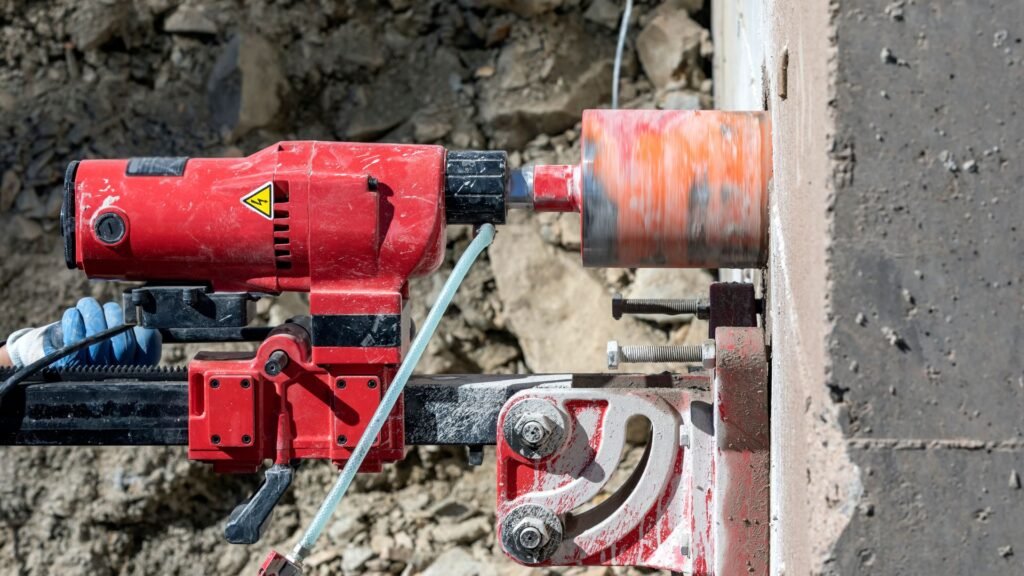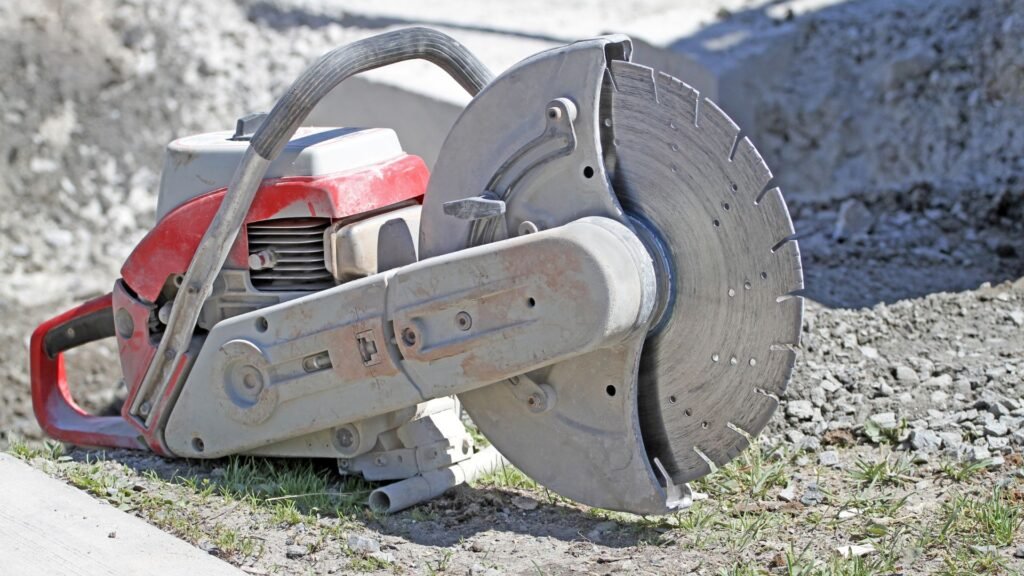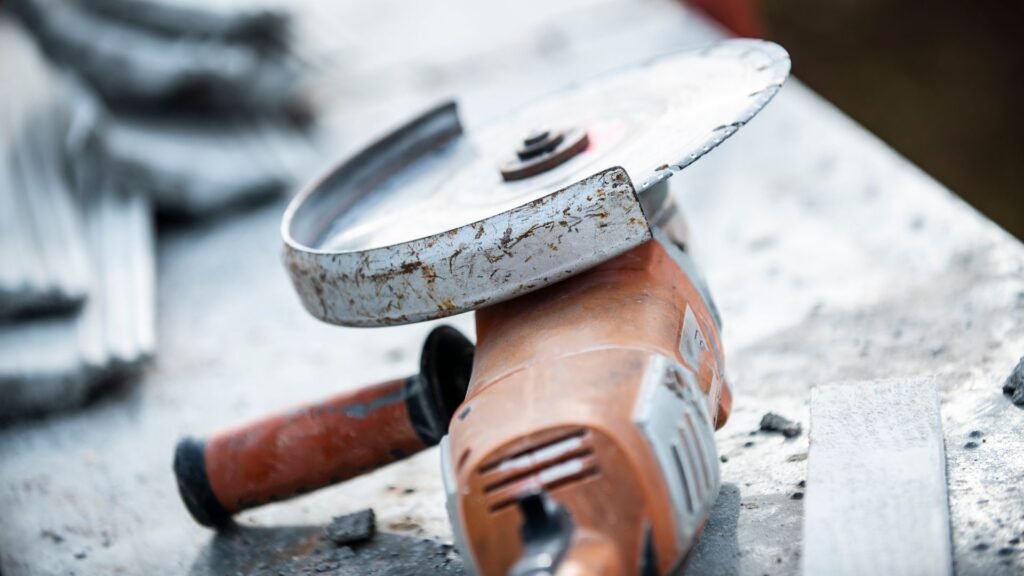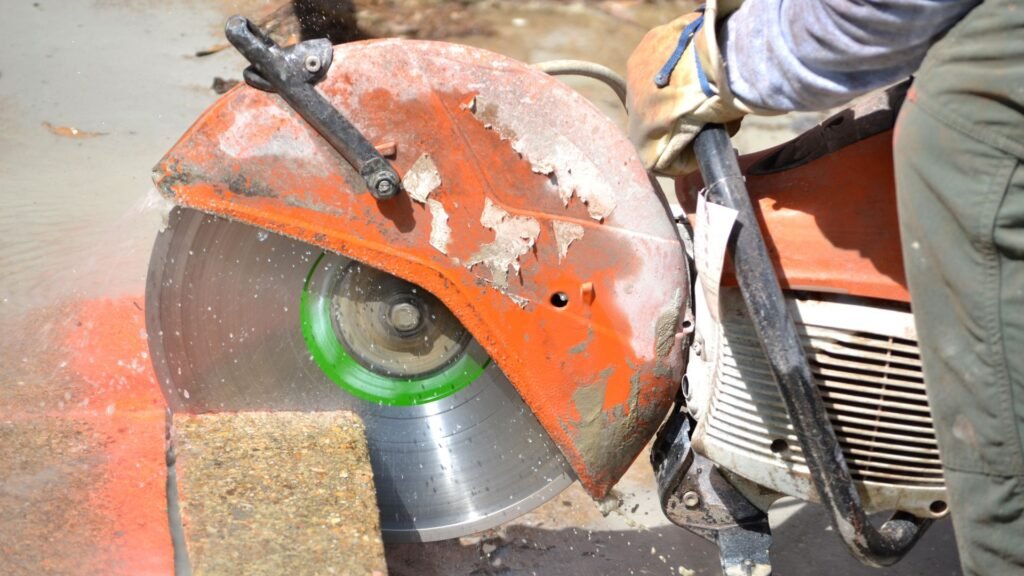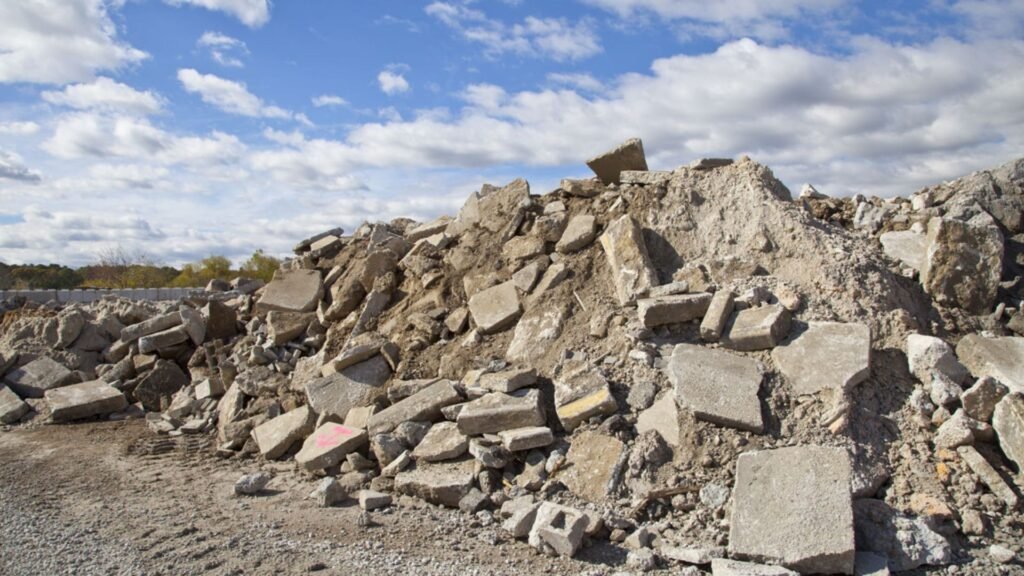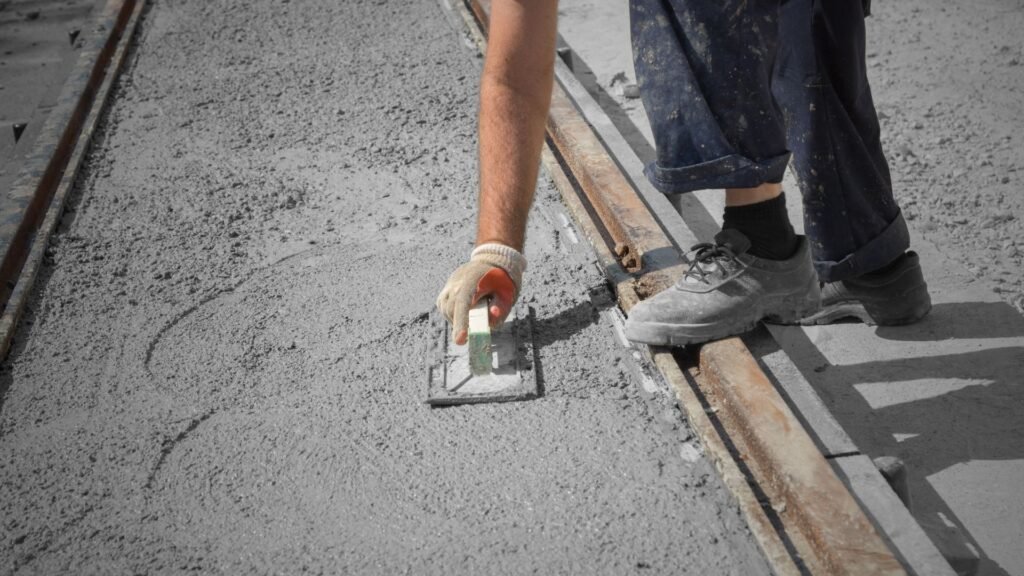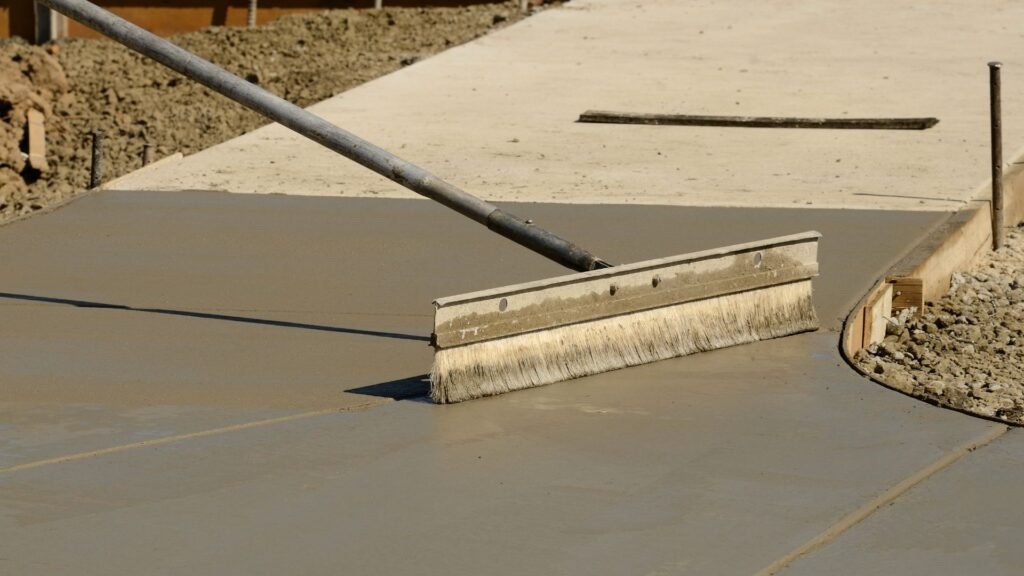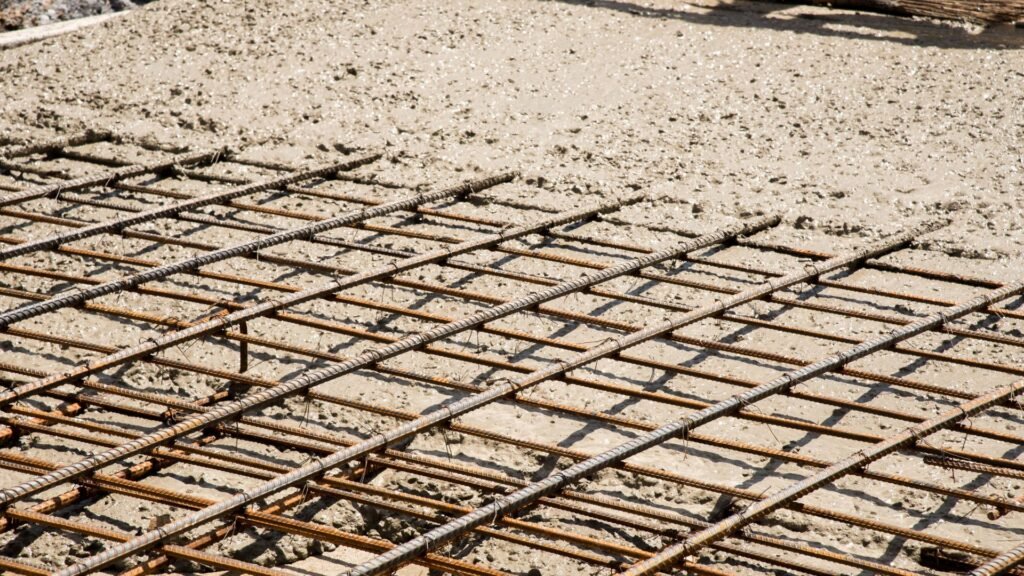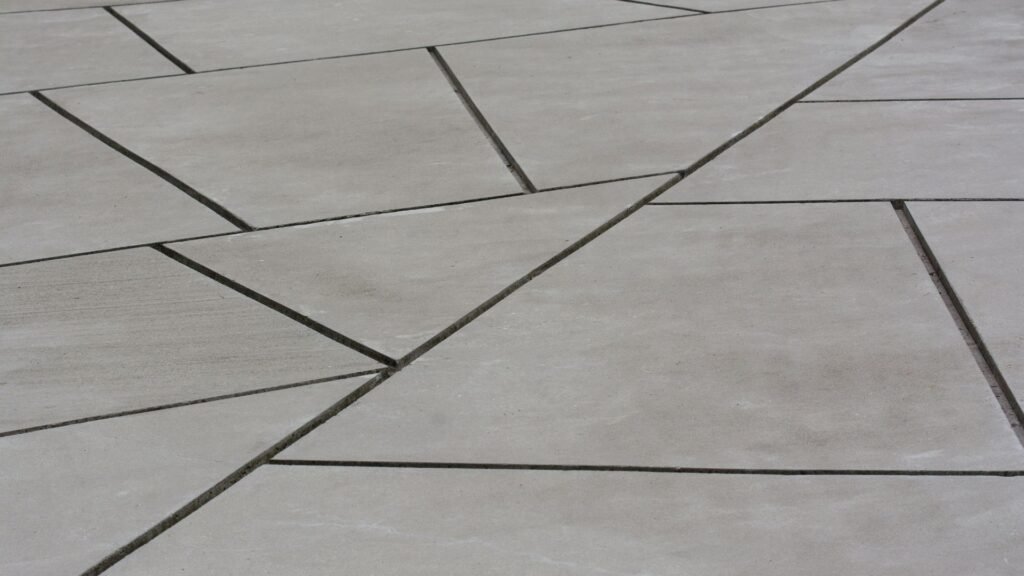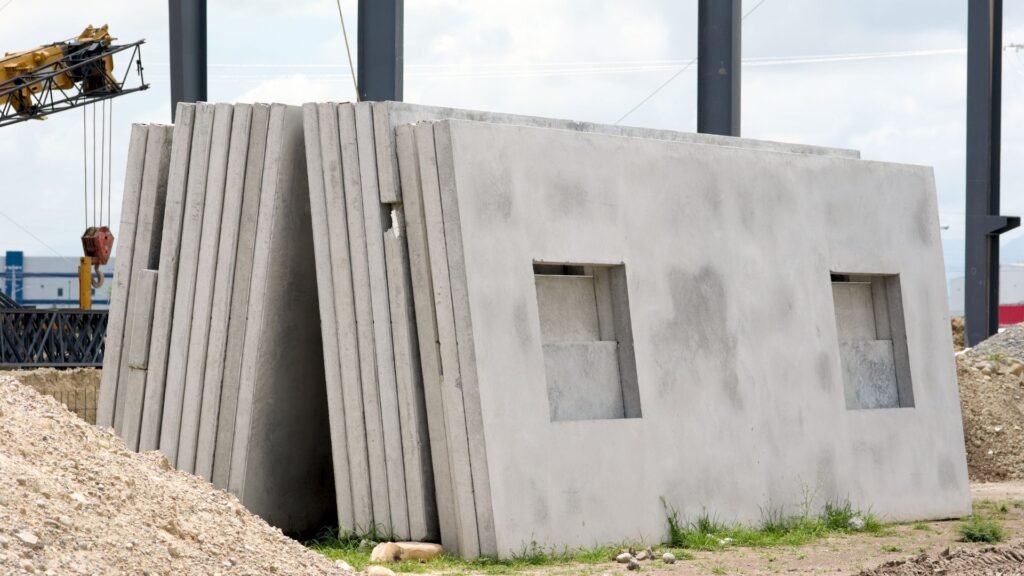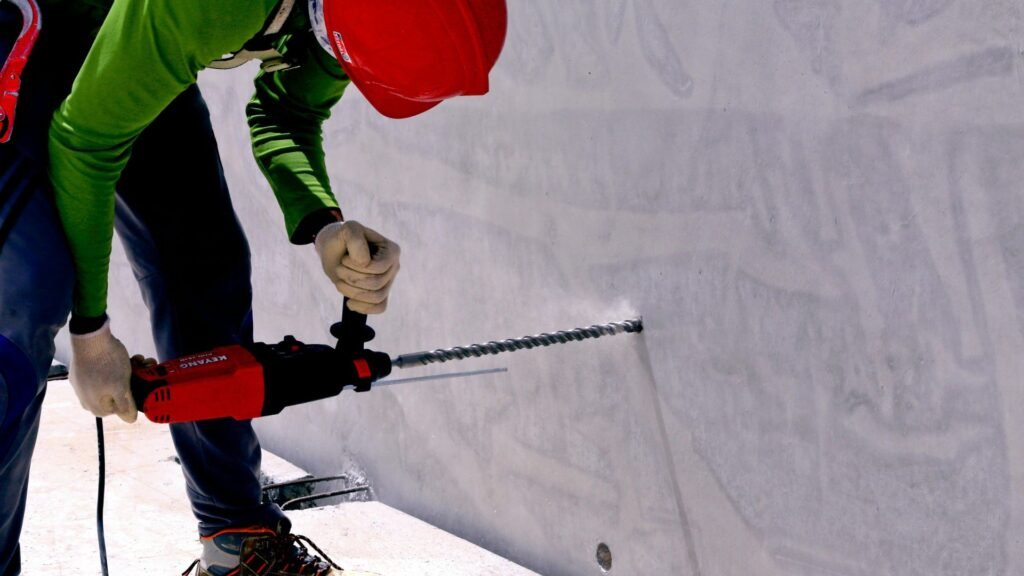Welcome to your guide on the cost of a concrete slab in New Zealand, where we break down everything you need to know before starting your project. Concrete slabs are one of the most common foundations for Kiwi homes, driveways, patios, and sheds, thanks to their durability and practicality, but many homeowners are often surprised by the wide range of costs involved. Prices can vary based on size, thickness, finish, location, and even site conditions, making it tricky to know what to expect without the right information. In this article, we’ll walk you through the average costs, the main factors that influence pricing, regional differences, and the hidden expenses that can catch you off guard. You’ll also get practical tips for saving money without sacrificing quality, along with answers to common questions about installation and maintenance, so you can plan your slab project with confidence.
The average cost of a concrete slab in New Zealand is $70–$120 per m² for a basic slab, while reinforced or decorative options can cost more. A small 10m² patio might start around $700–$1,200, whereas a large driveway or house foundation can run into the tens of thousands depending on thickness, site preparation, and finishes. Factors like location, labour rates, and access to the site also affect the final price.
Table of Contents
What Is A Concrete Slab?
A concrete slab is a flat section of concrete that is poured directly onto the ground to form a strong, stable base. It is created by preparing the site, placing formwork, adding reinforcement such as steel mesh, and then pouring and leveling the concrete mix. Once cured, the slab provides a reliable surface that can handle weight, weather, and daily use. Thickness usually ranges from 100 to 150 millimetres, depending on the project.
Common Uses In NZ
Concrete slabs are widely used across New Zealand for different residential and commercial needs:
- House foundations for modern slab-on-grade homes
- Driveways and parking areas that need to handle vehicles
- Sheds, garages, and workshops requiring solid flooring
- Patios, footpaths, and garden areas with a clean finish
- Utility bases for water tanks, air conditioning units, or outdoor features
Why It’s Popular
Concrete slabs remain a top choice in NZ because they are long-lasting, adaptable, and suited to local conditions. They withstand heavy loads, provide weather resistance in rain and coastal zones, and offer a low-maintenance option compared to timber or pavers. Concrete also has thermal mass benefits, helping to regulate indoor temperatures, and its fire and pest resistance adds another layer of security.
Concrete slabs combine strength, practicality, and value, making them a dependable foundation for many projects in New Zealand. If you’re planning a build, knowing how slabs are used and why they are preferred will help you make informed decisions.
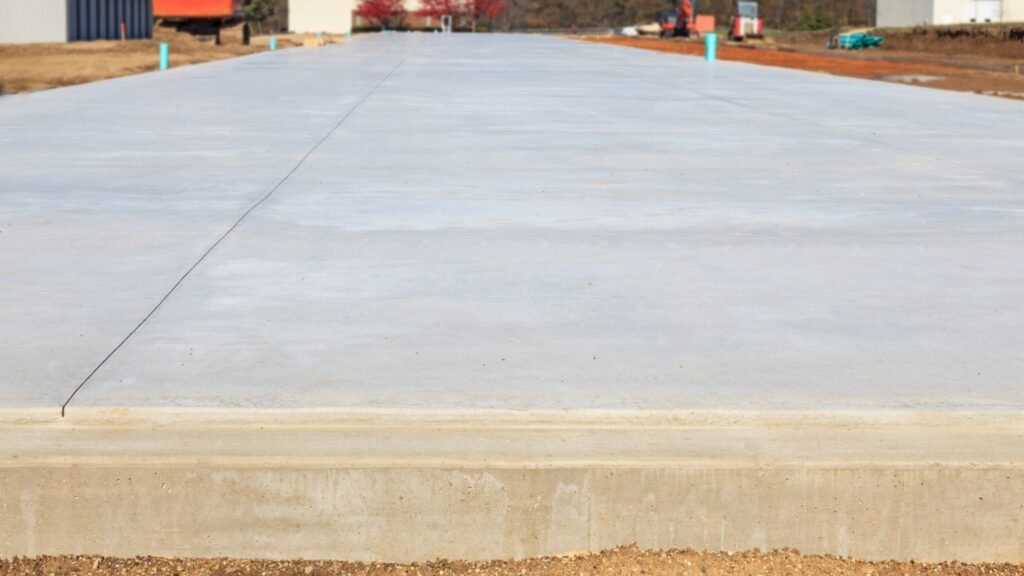
Average Cost Of A Concrete Slab In NZ
When planning a project that requires a concrete slab, one of the first considerations is cost. In New Zealand, prices can vary based on size, finish, and location, but having a clear idea of average costs will help you budget with confidence.
Cost Per Square Metre
A plain concrete slab typically costs between $70 and $120 per square metre. This estimate applies to basic finishes with no decorative touches. If you are considering polished, coloured, or stamped concrete, expect the cost to be higher due to added materials and extra labour.
Small Project Costs
For smaller jobs such as a 10m² patio or shed base, the total expense usually falls between $700 and $1,200. These projects often require minimal site preparation, but the final price will still depend on access, ground conditions, and the finish you choose.
Large Project Costs
Bigger projects, like a 100m² driveway or a house foundation, can cost tens of thousands of dollars. These slabs typically need excavation, steel reinforcement, and more extensive labour, all of which increase the total price.
Regional Price Variations
Concrete slab prices are not the same across the country. In larger cities such as Auckland, Wellington, and Christchurch, labour and supplier costs are usually higher compared to smaller towns. Transport fees and site accessibility can also push the price up, especially in rural or hard-to-reach areas.
Labour And Materials Combined
When calculating overall costs, remember that the price includes both materials and labour. While materials such as cement, steel, and aggregates make up a large portion, skilled labour for site preparation, pouring, and finishing often accounts for a significant share of the expense.
By understanding these cost ranges, you can approach contractors with realistic expectations and compare quotes more effectively. Choosing quality materials and experienced workers may mean a higher upfront cost, but it will usually result in a stronger, longer-lasting slab.
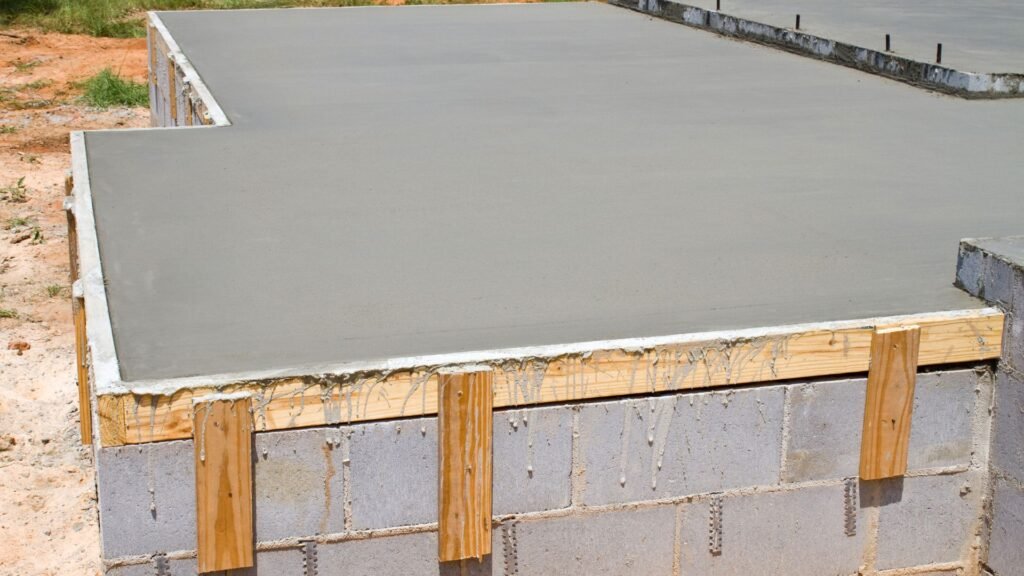
Key Factors That Influence Cost
When it comes to the cost of a concrete slab in New Zealand, several factors can significantly change the overall price. Understanding these will help you plan your budget and avoid unexpected expenses.
Size And Thickness
Size is one of the most obvious cost drivers. A larger slab requires more concrete, more labour, and more time to complete, which naturally raises the total cost. Thickness also matters because a thicker slab uses more material and often requires extra reinforcement. For example: a small 10m² patio slab may only need a standard thickness, while a 100m² driveway will need to be thicker to handle vehicle weight.
Type Of Concrete
The type of concrete chosen can also influence the price. Standard concrete is usually the most affordable option and works well for simple paths and patios. Reinforced concrete is more expensive but offers the strength needed for structural foundations. Decorative options like stamped or exposed aggregate add visual appeal but increase costs, while polished concrete is often used indoors for its sleek look and durability.
Site Preparation
Before pouring the slab, the site must be properly prepared. This step may include excavation, leveling the ground, or installing drainage systems. A flat, easy-to-access site requires minimal preparation, keeping costs lower. But if the land is sloped, rocky, or needs significant clearing, preparation costs can add up quickly.
Reinforcement
Reinforcement is another important cost factor. Adding steel mesh or rebar strengthens the slab and reduces the risk of cracking over time. While this adds to the upfront cost, it can save you money in the long run by preventing expensive repairs or replacements. Reinforced slabs are especially important for driveways, garages, or house foundations.
Finishes And Extras
A plain concrete finish is the cheapest, but many homeowners choose to add extras for both style and durability. Polishing creates a smooth and modern surface, stamping provides patterns that mimic stone or brick, and sealing protects the slab from weather and stains. Each additional finish raises the total price, so it’s worth weighing the visual benefits against your budget.
Labour Rates
Labour costs vary across New Zealand and can change depending on local demand for contractors. Larger cities like Auckland and Wellington often have higher rates compared to smaller towns or rural areas. Hiring experienced professionals may cost more, but it ensures better workmanship and compliance with local building standards.
Access To Site
Finally, access to the worksite plays a big role in pricing. If trucks and equipment can easily reach the area, costs stay relatively low. But if the site is difficult to access, contractors may need to use smaller mixers, wheelbarrows, or pumps to move the concrete, which increases both time and labour expenses.
By considering these key factors, you can better understand why the cost of a concrete slab in New Zealand varies from one project to another. Careful planning, along with clear discussions with your contractor, will help you set realistic expectations and keep your budget on track.
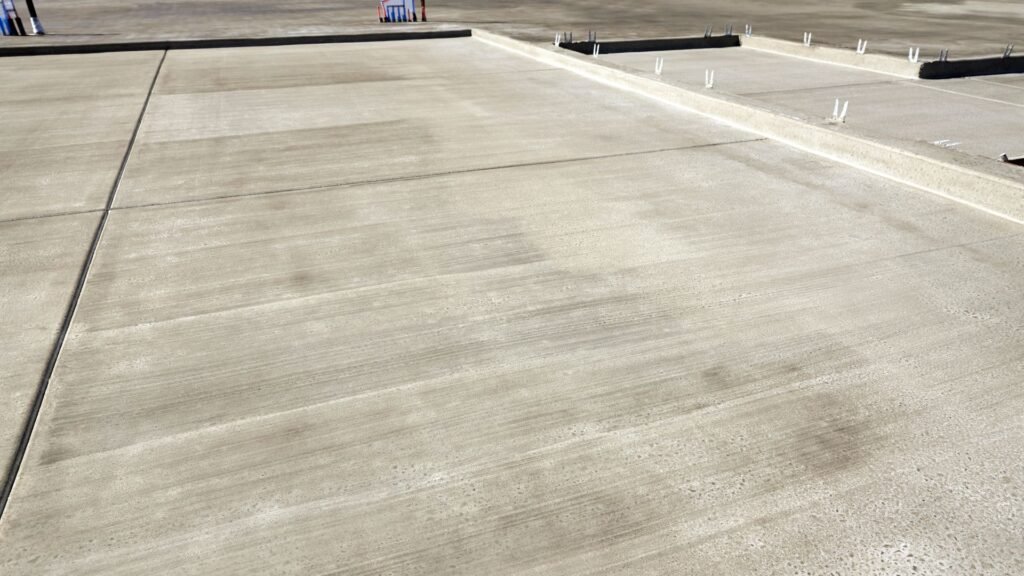
Cost Comparison: Different Types Of Concrete Slabs
When planning a project in New Zealand, it helps to understand the differences between the types of concrete slabs available and how their costs vary. Each type of slab serves a unique purpose, whether it’s strength, appearance, or practicality, and the price reflects the level of materials, labour, and finishing involved. Below are the most common options homeowners and builders choose, along with their typical price ranges.
Plain Concrete Slab (Basic Finish)
A plain concrete slab is the most affordable choice and is often used for garden paths, shed bases, or simple patios. It provides a functional surface without any extra design features. In New Zealand, you can expect to pay around $70–$100 per square metre for this type of slab, depending on site conditions and local labour costs.
Reinforced Concrete Slab (Structural Strength)
Reinforced concrete slabs include steel mesh or rebar to improve strength and prevent cracking under heavy loads. These are commonly used for driveways, garages, and house foundations where durability is essential. The added materials and labour increase the price, with costs ranging from $90–$140 per square metre in most NZ regions.
Polished Concrete (Interior Flooring)
Polished concrete has become a popular flooring option for modern homes due to its sleek appearance and low maintenance. Achieving a polished finish requires extra grinding, sealing, and finishing work, which adds to the overall cost. In New Zealand, polished concrete flooring typically ranges from $120–$200 per square metre, depending on the level of polish and complexity of the job.
Stamped Or Decorative Concrete (Aesthetic Appeal)
Stamped or decorative concrete is designed for those who want more than just functionality. This option allows for patterns, textures, or colours to mimic stone, brick, or tiles, adding visual appeal to outdoor areas like patios and driveways. Because of the extra design and finishing steps, stamped concrete usually costs between $100–$180 per square metre in New Zealand.
Choosing the right type of concrete slab depends on your project’s purpose, budget, and design preferences. While plain slabs are cost-effective for small, functional spaces, reinforced, polished, or decorative options may offer long-term value and enhance your property’s overall look. Always compare quotes from local contractors to get a clear picture of what works best for your needs.
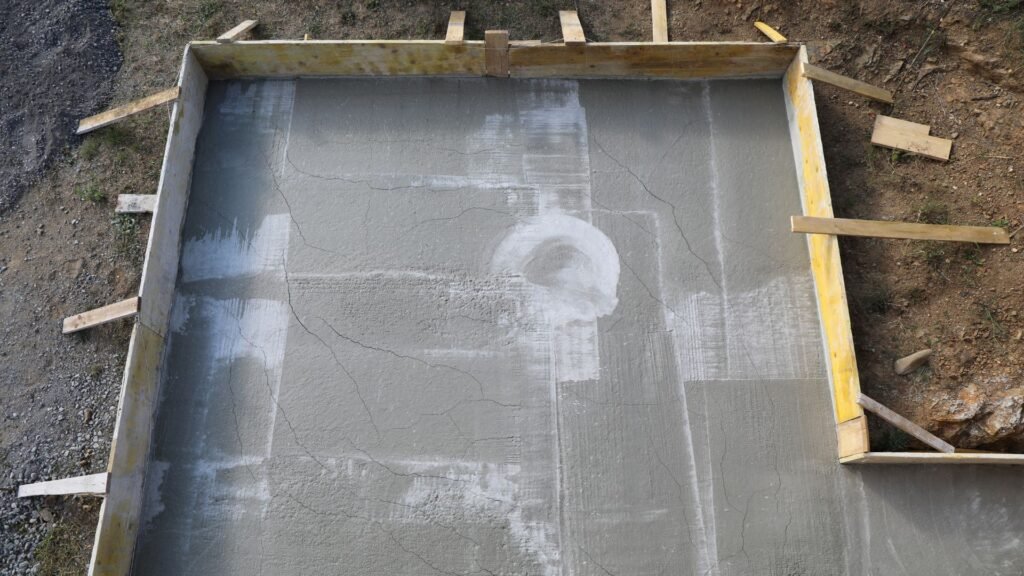
Regional Cost Differences In NZ
When it comes to the cost of a concrete slab in New Zealand, where you live can make a noticeable difference. Prices are not uniform across the country, and several regional factors influence the final cost that homeowners or businesses should expect to pay.
North Island Vs South Island Pricing Differences
The North Island often sees higher concrete slab costs compared to the South Island. This is largely due to demand, as more construction projects take place in densely populated areas such as Auckland, Hamilton, and Wellington. Higher demand means contractors are busier, which can drive labour rates upward. The South Island, while generally more affordable, may still have higher costs in some regions where specialist contractors or materials are less readily available.
Urban Vs Rural Areas
Urban centres like Auckland, Wellington, and Christchurch tend to have higher average costs than rural towns. This is because labour rates are typically higher in cities, and contractors face greater overheads. On the other hand, rural areas may offer lower hourly rates for labour, but the savings can be offset by transport charges if contractors need to travel long distances to reach the site. Accessibility also plays a big role, as sites in remote locations may require more time and resources to prepare.
Impact Of Transport And Availability Of Contractors
Transport and contractor availability are key cost drivers for concrete slabs across New Zealand. Delivering ready-mix concrete over long distances adds to overall project expenses, especially in areas far from batching plants. Availability of skilled contractors is another factor. In cities, you may have a wider choice of contractors but face higher demand and premium pricing. In smaller towns, there may be fewer contractors available, and while their rates can be lower, limited competition sometimes keeps prices steady.
Concrete slab costs in NZ are not one-size-fits-all. Understanding how regional differences affect pricing helps you set realistic expectations and plan your budget more accurately.
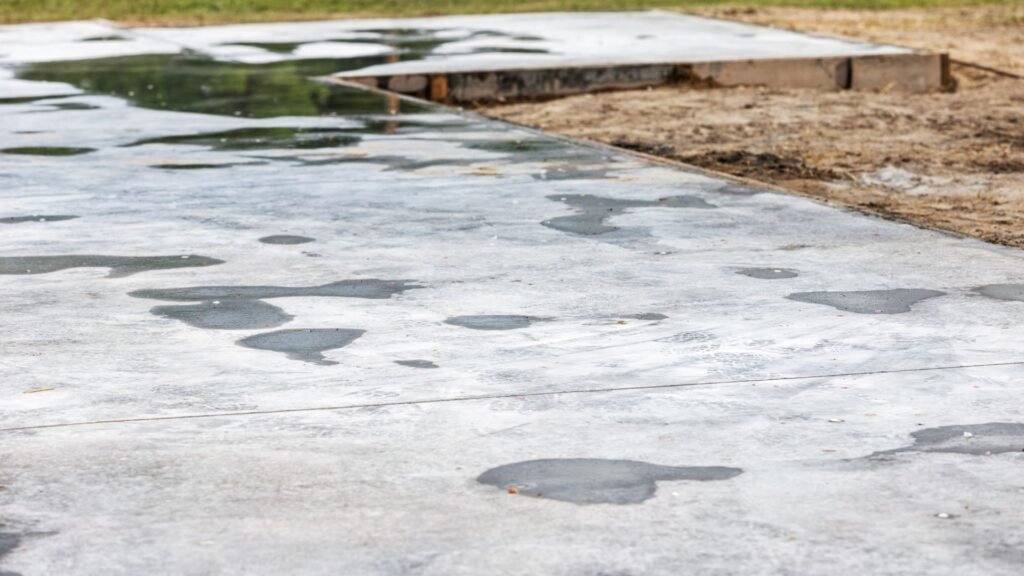
Hidden Or Extra Costs To Watch Out For
When planning the cost of a concrete slab in New Zealand, many homeowners focus only on the price of concrete and labour. While those are major expenses, there are several hidden or extra costs that can quickly add to your budget. Understanding these beforehand helps you avoid surprises and gives you a clearer picture of the total project cost.
Site Clearing Or Demolition
Before a slab can be poured, the site must be prepared. If your land has existing structures, old concrete, or heavy vegetation, you may need demolition or clearing services. This can involve removing trees, pulling out roots, breaking up existing concrete, or hauling away debris. These tasks often require machinery and additional labour, which can add hundreds or even thousands of dollars to your project.
Drainage Or Waterproofing Requirements
Poor drainage can weaken a slab over time, leading to cracks or subsidence. In many cases, contractors recommend installing proper drainage systems, such as gravel bases, pipes, or waterproof membranes, before pouring concrete. While these steps protect your investment and extend the life of the slab, they also increase costs. The price will depend on the complexity of your site and whether additional materials or engineering work are needed.
Permits Or Consents If Part Of A Larger Build
If your slab is part of a larger project, such as a new home or extension, you may need council permits or building consents. These are often required for structural slabs or when the work impacts drainage and surrounding land. Application fees vary across New Zealand councils, and you may also need to pay for inspections or professional drawings. Although this step adds time and cost, it ensures the project meets safety and compliance standards.
Long-Term Maintenance (Sealing, Repairs)
The cost of a slab doesn’t end once it’s poured. To keep concrete strong and attractive, ongoing maintenance is essential. Regular sealing protects against moisture, stains, and wear, while timely repairs prevent small cracks from spreading. Depending on use, sealing may be needed every few years, and repairs can add to lifetime costs. Budgeting for these tasks helps avoid expensive issues in the future.
Planning ahead for these hidden or extra costs allows you to budget more accurately and avoid unexpected financial strain. By addressing site preparation, drainage, legal requirements, and long-term care, you ensure your concrete slab remains durable and cost-effective for years to come.
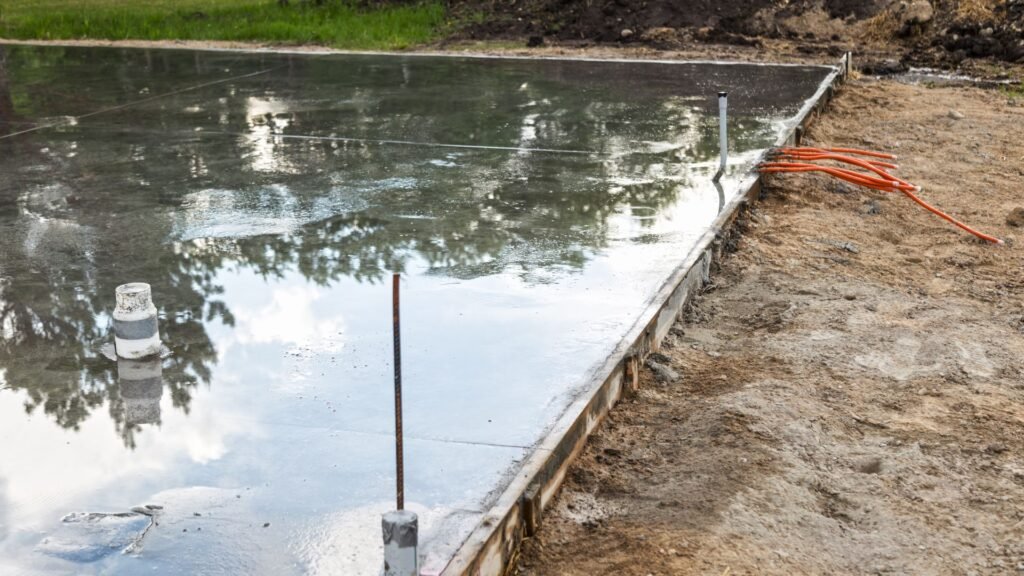
DIY Vs Hiring Professionals
When planning a concrete slab project in New Zealand, one of the first decisions is whether to pour it yourself or hire a contractor. Both options have benefits and drawbacks, and the right choice depends on the scale of your project, your skills, and your budget.
Pros And Cons Of DIY
DIY can look appealing because of the potential cost savings. By avoiding labour fees, you may reduce the upfront price of smaller slabs such as those for garden sheds or paths. For homeowners with building experience and the right tools, this can be a rewarding option. The challenge lies in the complexity of the job. Mixing concrete correctly, pouring it evenly, and finishing it before it sets requires precision. Without this skill, the result can be weak or uneven, often leading to extra expenses for repairs or even replacement.
Why Most Homeowners Choose Professionals
Professional contractors bring knowledge, equipment, and experience to the job. They know how to prepare the site, reinforce the slab properly, and finish it to meet building codes. This ensures strength, durability, and compliance with council requirements. For driveways, patios, and house foundations, this level of expertise is critical. Professional work also provides peace of mind that your slab will perform well under New Zealand’s conditions, from heavy rainfall to temperature changes.
Risks Of Poor Work
Improperly installed concrete comes with real risks. Common issues include cracking, uneven surfaces, pooling water, or slabs that slope incorrectly. These problems shorten the lifespan of the concrete and compromise its safety and function. In many cases, fixing or replacing a poorly poured slab ends up costing more than hiring professionals in the first place.
Deciding between DIY and professional work depends on your project size and confidence level. Small, non-structural slabs may be manageable on your own, but for larger or load-bearing projects, hiring professionals is often the safer and more cost-effective choice. A concrete slab is a long-term investment, and getting it right the first time helps you avoid unnecessary stress and expense later.
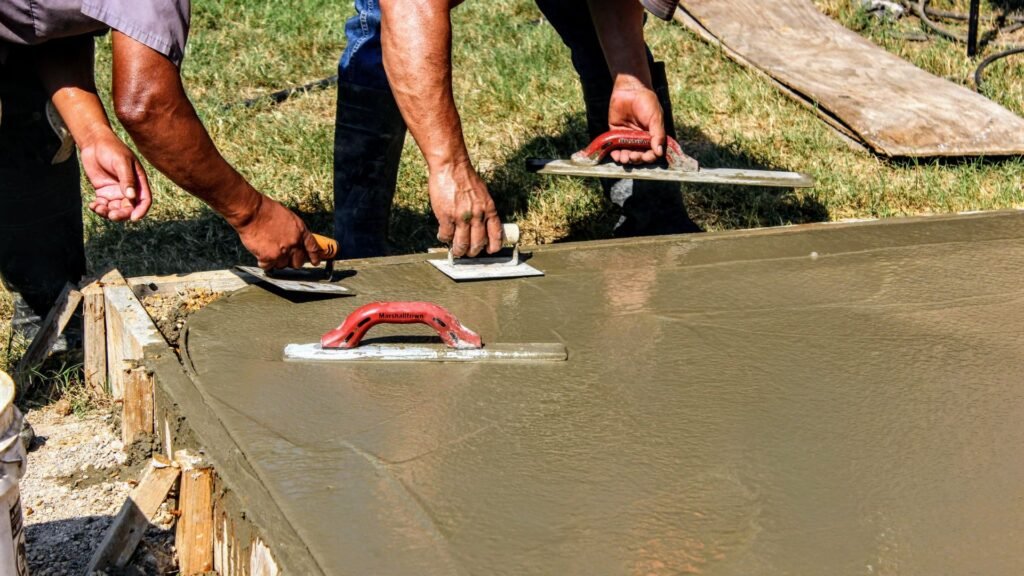
Tips To Save Money Without Cutting Corners
When it comes to building a concrete slab in New Zealand, cost is always a major consideration. While it’s tempting to look for the cheapest option, cutting corners can lead to problems like cracks, uneven finishes, or expensive repairs later on. The goal should be to balance affordability with long-term value. Here are practical ways to reduce costs without compromising quality:
- Get multiple quotes from contractors: Prices can vary significantly between contractors, so it’s smart to compare at least three detailed quotes. This not only helps you find the best rate but also gives you insight into what services are included. Look closely at the breakdown of costs so you know what you’re paying for.
- Combine projects: If you’re planning more than one job, such as a driveway and a patio, consider having them poured at the same time. This reduces labour costs, saves on equipment hire, and often results in better overall pricing. Contractors are more likely to offer a discount when handling a larger project in one go.
- Choose practical finishes: While decorative concrete looks attractive, it can increase costs quickly. For areas like driveways or shed floors, a standard or lightly polished finish is often enough. Reserve decorative finishes for spaces where appearance is a priority, such as patios or indoor flooring.
- Plan site access: Poor access to your site can add extra costs for labour and equipment. Before work begins, make sure trucks, mixers, and workers can reach the area easily. Clearing obstacles or creating a temporary access path can reduce time delays and unexpected charges.
- Regular maintenance to extend slab life: Sealing your concrete, cleaning it regularly, and repairing minor cracks early will prevent costly damage later on. A little maintenance goes a long way in avoiding full slab replacement or major repairs.
By planning carefully and making smart choices, you can keep costs under control while ensuring your concrete slab remains strong and durable for years to come.
Ready to plan your next project? Discover how we can help you get the best value for your concrete slab in NZ—visit our homepage to learn more and request a free quote today.
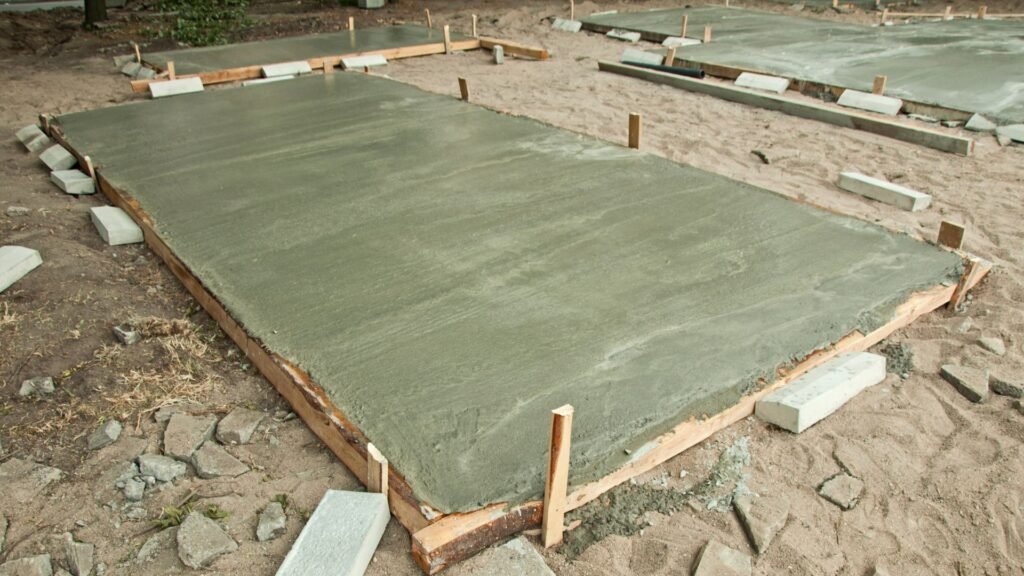
FAQs: About Cost Of Concrete Slab In NZ
How much does a concrete slab cost per m² in NZ?
On average, a concrete slab in New Zealand costs between $70 and $120 per square metre for a basic finish. Decorative or reinforced options are more expensive.
What is the total cost of a small concrete slab project in NZ?
A small 10m² slab, like for a patio or shed base, may cost around $700–$1,200 depending on site prep and finishes.
What factors affect the cost of a concrete slab in NZ?
Key factors include slab size, thickness, type of concrete, reinforcement, finishes, labour rates, and site accessibility.
Do concrete slab prices vary across New Zealand?
Yes. Costs are often higher in large cities like Auckland and Wellington compared to rural areas, due to labour rates and material availability.
How long does a concrete slab last in New Zealand?
With proper installation and maintenance, a concrete slab can last 30–50 years or more.
Do I need council consent to install a concrete slab?
For small slabs (like garden paths or small patios), consent is usually not required. For foundations or larger structures, consent may be needed—always check with your local council.
What’s the difference between plain and reinforced concrete slabs?
Plain slabs are suitable for light use, while reinforced slabs use steel mesh or rebar for added strength, making them ideal for driveways, garages, or house foundations.
Can I pour a concrete slab myself to save money?
DIY is possible for small projects, but it requires skill and the right tools. For larger or structural slabs, hiring a professional is recommended to ensure safety and durability.
What extra costs should I plan for with concrete slabs?
Hidden costs may include site clearing, excavation, drainage, waterproofing, decorative finishes, or sealing.
How can I save money on a concrete slab without cutting corners?
Get multiple quotes, combine projects into one pour, choose practical finishes over expensive decorative options, and maintain the slab to extend its life.
Conclusion
Concrete slabs in NZ can vary greatly in cost depending on their size, type, finishes, and the specific conditions of the site, which is why there is no one-size-fits-all price. Homeowners who take the time to plan ahead, compare multiple quotes, and carefully consider the right materials and finishes for their project will not only avoid unexpected expenses but also ensure a slab that lasts for decades. Choosing quality workmanship over shortcuts pays off in the long run, as a well-constructed slab provides strength, durability, and peace of mind for your home or outdoor space. If you’re planning a project, start by getting quotes from local contractors to get an accurate cost for your slab and make an informed decision that balances budget with lasting value.

